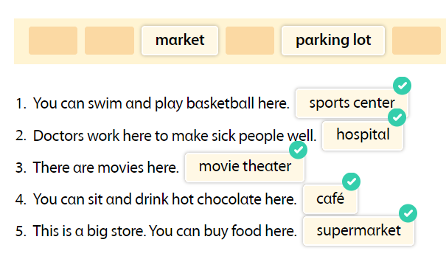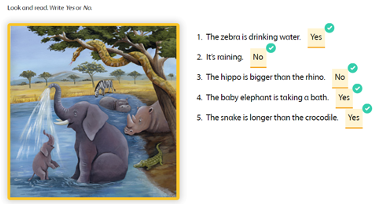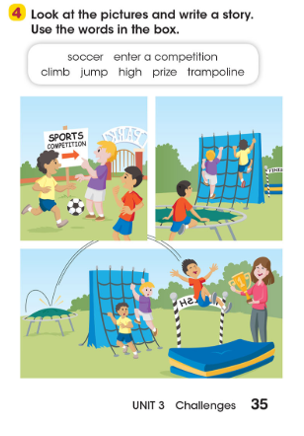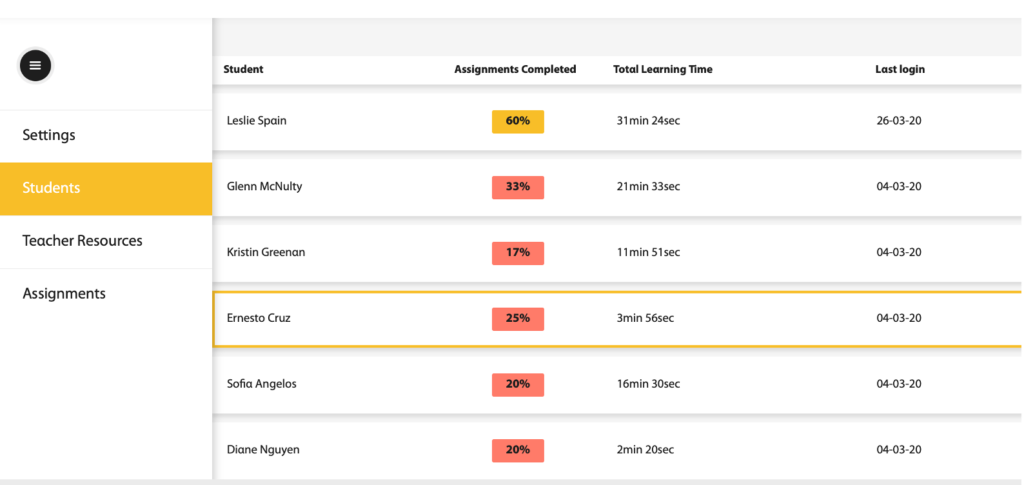How is assessing online different?
- The learners: Our learners are in a different situation; often at home with parents watching them and without the support of their peer group. We need to be mindful that they may feel uncomfortable or sensitive to their situation.
- The options: Certain ways of direct assessment cannot be conducted online or are less effective online. We need to think about how we can explore possibilities in classroom assessment.
- The results: It’s hard to make sure online assessments are fair and reliable unless they are very formalised or part of an online testing tool. So, we need to make sure any formative assessment we do is fair to students and as objective as possible.
How can we manage real time assessment?
- Try and think about the broadest sense of assessment, which is that it is collecting evidence of your students’ knowledge or performance. If you think ‘How can I collect this evidence?’ rather than ‘How can I assess?’ then it is likely you will be able to think of more options and ways to measure your students’ progress.
- Try to focus on how the students use the language rather than scores of what is wrong and right. As long as you have clear criteria you can make a fair judgement about how well they are performing against those criteria (e.g. well, very well) rather than a specific score.
- Don’t worry about ‘cheating’. When you ask an assessment question your students may look down at their book or phone or they may have their parents help to e.g. do some writing offline. But what matters is how they are engaging with the lesson and you can use deep questioning to check how well they understand or know something. If they don’t know it we can use repetition to make sure they do absorb the teaching point.
- As with all assessments, however young they are, make sure you tell students how you are assessing them and what you expect. This is especially important when they are often on their own when they are in ‘class’ with you. It helps reassure them that they know what the purpose is and what they have to do.
- Record a range of progress points. Don’t just record how much vocabulary they know or how good their reading is; use as many ‘judgement’ points as you can e.g. their behavior or effort or how engaged they are etc. This means you should be able to report some achievement for every child which will be very important in the new online teaching environment. Our young learners will need to feel successful in some parts in order to feel confident and motivated.
What assessment methods and activities can we use?
Part of our thinking in ‘collecting evidence’ is considering what different way we can do this in an online context. It’s not really appropriate to ask students to complete paper tests in ‘class’ time anymore as this time needs to be used for interaction. But we can exploit this interaction for assessment purposes and use offline time for preparing paper-based assessments. Let’s look at some examples.
A . Real time online assessment
If we want to check vocabulary or grammar quickly we can check how well students understand or ‘know’ something by using a three-step process which will ensure that even weaker students can be brought up to speed. With these methods we are assessing and teaching at the same time.
Stage 1: Repetition – when you get a correct answer, ask others to repeat. They never know who you will pick so they all have to listen and then they have the satisfaction of getting it right plus praise from you. At the same time the weaker students hear the grammar of vocabulary example often and so have a better chance of remembering.
Stage 2: Deep questioning – what, why, how, when, where, who. Once students give an answer, ask them questions to broaden their thinking and embed the learning.
Stage 3: Reporting – students report something they know well. Then ask students to report on the situation or context based on Stage 2.
By the end of this process you can be confident of their understanding and record this ‘evidence’.
Here is an example way of assessing vocabulary knowledge using an activity from Look! Ask students to complete this task offline.

When you ‘meet’ the class:
- Elicit the answer to Q1.
- Ask a couple of students randomly selected to repeat the answer to check they are listening and to support weaker students.
- Ask deep questions to check understanding and elicit further repetition of the vocabulary, e.g. When do you go to the sports centre?
Who do you go with?
What can you do there?
Make a note of how well or confidently they answer. This is your ‘evidence’ of learning.
Here is another example from Look! We can use to assess speaking from reading.

Again students complete the activity offline. Then in (online) class, check the answers and exploit the activity to collect evidence of their speaking. This is fair because they have had an opportunity to study the picture and reading points. You can ask questions orally several times round the class, for example:
What is the zebra drinking?
What’s the weather like?
Which is the biggest animal?
What is the baby elephant doing?
Note how confidently or quickly they respond or use as evidence for their pronunciation. You don’t have to assess the ‘right’ answer if your focus is a speaking skill.
Remember to tell students what you will be focusing on when you ask them the questions.
| ORAL Qs: What is the zebra drinking? What’s the weather like? Which is the biggest animal? What is the baby elephant doing? |
B. Offline preparation/assessment
We can ask student to do lots of different kinds of preparation offline and then use online time to collect our evidence of their understanding and/or performance. As well as the activities mentioned above, you can focus on more substantial offline preparation such as writing a short story. Make sure you build for success by checking the pictures with the students first, then asking them to write the story. They could also do this offline as a group or collaborative activity if they can contact each other online.
Here is an example picture story from Look!

Once back online in class, you can do various activities to gather the evidence you need to check their understanding, e.g.
- Ask each student to read their version of picture 1
- Ask each student to ‘add’ to the previous sentence or version
- Ask the class to take turns to read or say a new improved version
- Students then write a second, better version offline again
- Get students to ask each other questions for each picture eg where are the children?
- Students can report a version of the story without looking at the pictures
You can use these various activities to assess:
- Writing based on communicative competence ie the ‘fullness’ of the story
- Listening based on what they ‘spotted in each other’s versions
- Speaking based on speed or fluency or intelligibility
Record the results as part of your ongoing evidence collection.
The important point is making sure that any offline work is always addressed and thoroughly exploited in online class time. This will help them understand they have to do the work but, given some of them may be in difficult situations, the repetition etc. allows all students to ‘catch up’.
C . Ongoing observational assessment
We can use ongoing observational assessment to record progress. As you set tasks and interact make a set of observational notes on the students as a form of assessment. E.g. how quick are they?, how engaged are they?, what is their behaviour like? You can decide on a set of these wider points that you note for every student so you are being fair and assessing everyone in the same way. But this also means that for weaker students you can always report something positive, e.g. maybe their behaviour or concentration is very good. Try breaking down language assessment points into small parts or steps e.g. just spelling in writing, or just turn taking in speaking and build up over time. Younger learners can generally only focus on one ‘standard’ or objective so this helps them get it right.
Make sure these criteria and your notes are objective so you can:
(a) report reliably and transparently to others
(b) see student learning for your own purposes
(c) have ‘evidence’ to support your assessment.
D. Using the Learning Management System to support assessment
National Geographic Learning provides an LMS to help teachers record information about the students’ progress. This information can also be used to support objective assessment points for young learners.
The LMS records various aspects of how the students manage tasks. These include the number of tasks they complete, the time they take on tasks and the number of attempts. Depending on the objectives you have set you can report this information not as a score but as a qualitative window into a student’s achievements.

For example, a weak student may not perform well linguistically but can be rewarded for diligently completing all tasks. Or you can use time taken to reward those who used time sensibly or to give feedback to those who are rushing or taking too long. Also you can use the information about the number of attempts a student took to complete a task in the same way. If they tried more than once and completed it well, they can be praised for keeping trying. If they try too many times, this can be part of your evidence that they need more help.
Looking for more insight on assessing young learners online? Be sure to watch the on demand recording of Elaine Boyd’s webinar Assessing Young Learners Online.



